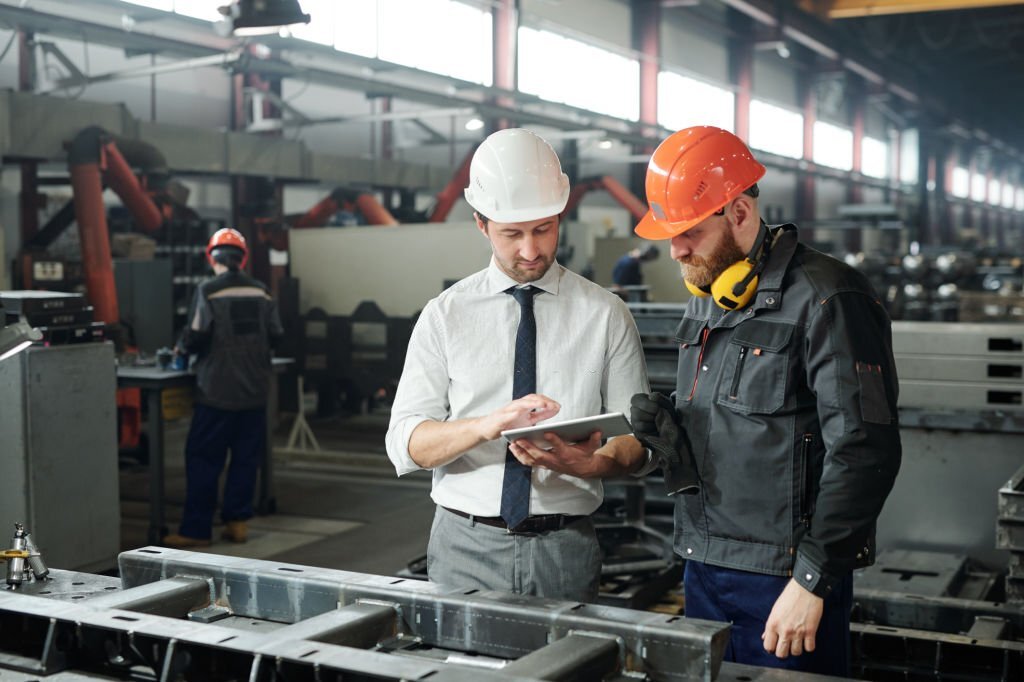
Construction sites are dynamic environments where heavy machinery and equipment play a vital role in project success. To ensure a safe work environment and prevent accidents, regular equipment inspections are crucial. In this article, we will explore the importance of regular equipment inspections and their significant impact on construction site safety.
- Identifying Equipment Defects and Malfunctions: Regular equipment inspections enable construction site supervisors and operators to identify defects or malfunctions in machinery. These inspections help detect issues like leaks, worn-out components, faulty electrical systems, or damaged safety features. By promptly identifying and addressing these problems, the risk of accidents and injuries can be significantly reduced.
- Ensuring Proper Functionality: Equipment inspections ensure that all machinery is operating at its optimal level. This includes checking engine performance, hydraulic systems, brakes, steering mechanisms, and other critical components. Proper functionality ensures that the equipment operates safely and efficiently, minimizing the chances of accidents caused by mechanical failures.
- Mitigating Potential Hazards: Construction sites are inherently hazardous environments, and equipment-related hazards can be especially dangerous. Regular inspections help identify potential hazards such as sharp edges, protruding parts, loose connections, or compromised structural integrity. By addressing these hazards promptly, the risk of accidents can be mitigated, safeguarding both equipment operators and other personnel on site.
- Compliance with Safety Regulations: Equipment inspections are essential for compliance with safety regulations and industry standards. Many jurisdictions and regulatory bodies have specific requirements for the inspection and maintenance of heavy machinery. Regular inspections ensure that construction sites meet these legal obligations, reducing the risk of fines or penalties while promoting a culture of safety and compliance.
- Extending Equipment Lifespan: Proper maintenance and regular inspections can significantly extend the lifespan of construction equipment. Inspections allow operators to identify early signs of wear and tear, corrosion, or deteriorating parts. By addressing these issues promptly, equipment breakdowns can be prevented, minimizing downtime and costly repairs. Regular inspections also contribute to higher equipment resale value in the long run.
- Enhancing Operator Confidence and Competence: Regular inspections provide equipment operators with a sense of confidence and competence in their machinery. Knowing that the equipment they are operating is well-maintained and in good condition boosts their confidence in their ability to perform tasks safely and effectively. This increased confidence leads to improved operator performance and overall site safety.
- Establishing a Safety Culture: Regular equipment inspections foster a safety-conscious culture on construction sites. When supervisors prioritize and emphasize the importance of inspections, it sets a standard for safety that permeates throughout the workforce. It encourages open communication about equipment concerns, promotes proactive maintenance practices, and reinforces a collective commitment to safety among all personnel.
Conclusion:
Regular equipment inspections are fundamental to construction site safety. By identifying defects, ensuring proper functionality, mitigating potential hazards, and complying with regulations, inspections play a crucial role in accident prevention and maintaining a safe work environment. Moreover, they contribute to increased equipment lifespan, operator confidence, and the establishment of a safety-focused culture. Prioritizing regular equipment inspections is a proactive step towards safeguarding personnel, minimizing downtime, and promoting overall project success.

